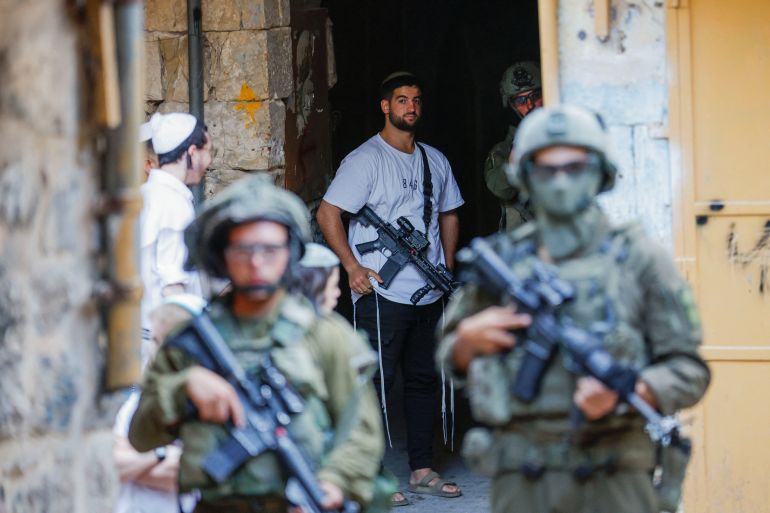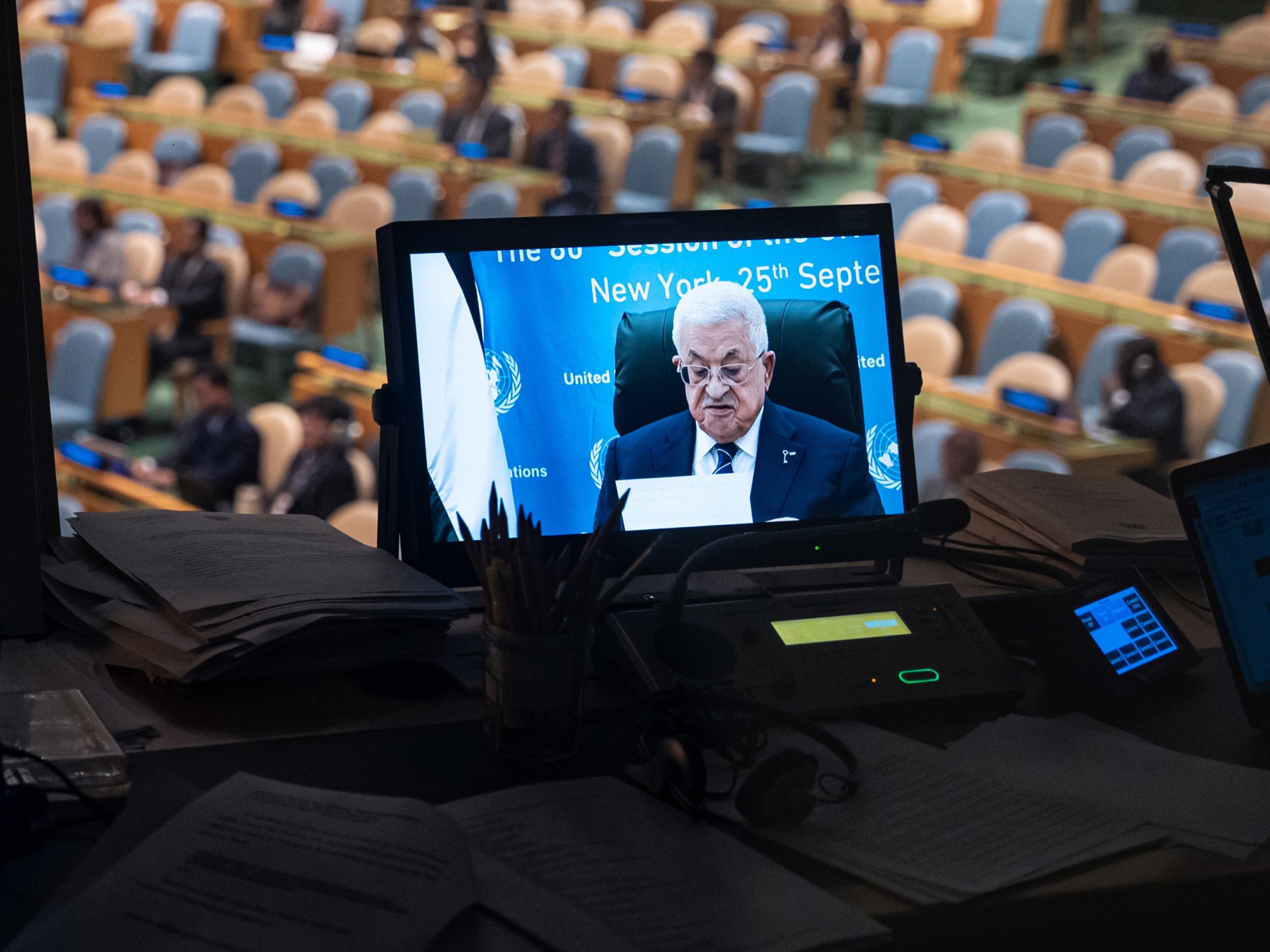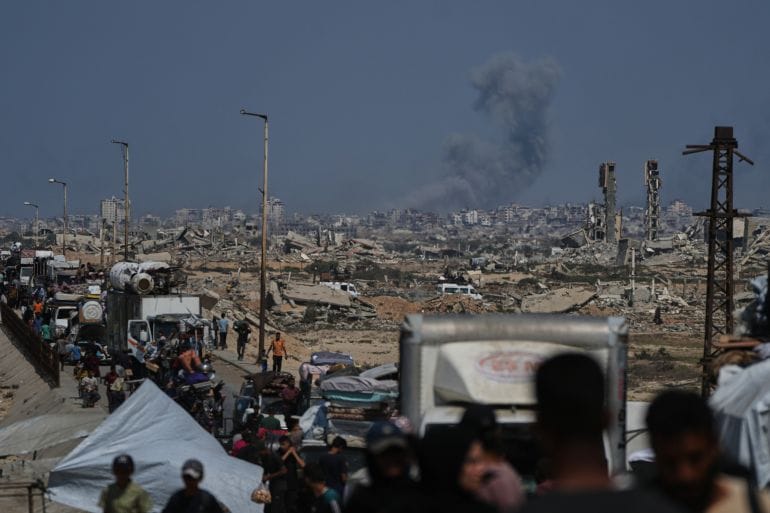What does Trump’s plan mean for the state of Palestine? | Israel-Palestine conflict News
The Gaza ceasefire proposal presented by US President Donald Trump, and which Israel’s Prime Minister Benjamin Netanyahu has said he has accepted, may not deliver the results Palestinians have long hoped for, analysts tell Al Jazeera.
While people on the ground would be infinitely relieved by a halt in Israel’s vicious bombardment that has killed at least 66,055 people and wounded 168,346 since October 2023, the 20-point Trump plan contains almost nothing else positive for the people of Palestine, analysts say.
Recommended Stories
list of 3 itemsend of list
“Ending the genocide is tied to this very colonial approach in which Israel – the party that has carried out the genocide – and the US – who has funded it – are the ones who get to decide the future of the people against whom they’re committing genocide,” Palestinian lawyer and analyst Diana Buttu, who was a legal adviser to the Palestinian negotiating team from 2000 to 2005, said
“If you read the agreement itself, there are no guarantees provided to the Palestinians, not a single guarantee,” she added.
“All guarantees are provided to the Israelis.”
Focus on Gaza, but no clarity
Under the plan, fighting in Gaza would cease, captives from Israel who are held in Gaza – alive or dead – would be returned, in return for hundreds of living Palestinians taken by Israel, as well as the remains of hundreds who have died.
Then, Hamas is required to give up control over the Gaza Strip to the “Board of Peace”, an international transitional administration chaired by Trump, with members including Former UK Prime Minister Tony Blair.
Hamas members who promise “peaceful coexistence” and disarmament will be granted amnesty. Others “who wish to leave Gaza will be provided safe passage to receiving countries”.
Aid deliveries would resume, Israeli troops would allegedly withdraw after certain conditions are met, though it is unclear who would enforce their withdrawal, and an economic revitalisation plan would be developed by experts who created “thriving modern miracle cities in the Middle East”.
Hamas has said it is currently deliberating on the plan.
Trump warned that if it rejects his offer, Israel would have free rein, with full US support, to take any action it sees fit in Gaza. Human rights organisations and scholars have already called Israel’s current actions in Gaza a genocide.
However, this leaves many questions unanswered, Muhannad Seloom, assistant professor at the Doha Institute for Graduate Studies, told Al Jazeera.
For example, while the Palestinian Authority (PA) is mentioned in the plan, there is no immediate role for it until it completes a reform programme composed of various proposals. While Trump listed his 2020 peace plan and the Saudi-French proposal, it’s unclear which reforms he specifically means. The PA has, in the past, been told it should reform its governance, deal with endemic corruption, change the education curriculum, and change the social welfare system that supports Palestinian prisoners’ families.
The PA has reformed the prisoners’ families’ payment programme, but that did not stop Secretary of State Marco Rubio from disregarding the changes and criticising the PA for an old policy, according to the Times of Israel.
What is clear to analysts is that the PA will have to satisfy Israel and the US that it has completed its reform process before it can rule Gaza, and with no clear goals, that could extend indefinitely.
Meanwhile, the plan says aid will be provided by the United Nations and the International Red Crescent, but does not mention whether the notorious Israeli and US-backed Gaza Humanitarian Foundation (GHF), which has led to more than 1,000 Palestinians killed waiting for aid, will be disbanded.
“It seems like a rushed agreement that will be worked on as they go along,” Seloom said.
What state is the state of Palestine in?
On September 21, Canada, Australia and the United Kingdom recognised the state of Palestine. More European countries, including France and Portugal, followed suit shortly after.
Global leaders paid tribute to the “two-state solution”, despite analysts claiming that the act of recognition was largely a face-saving exercise.
The international community has often spoken of a two-state solution for Israel and Palestine, and the UN General Assembly voted to back a resolution aimed at reviving a two-state solution on September 12.
However, analysts argue that the term “two-state solution” has little relevance to the reality on the ground and that this plan makes the question more pressing: Even if Israel’s two-year-long genocidal campaign against Gaza is paused, realistically, what shape would the state of Palestine be in?
Often when discussing a Palestinian state, the territories envisioned include the Gaza Strip and the West Bank, with East Jerusalem as the Palestinian capital.
But those areas are increasingly splintered and isolated by Israeli policy. And illegal Israeli settlements mushroomed in the occupied West Bank, further shrinking any potential future Palestinian state, with international complicity.
This was true before October 2023, but actions like movement restrictions, land grabs, settlement expansions, settler and military violence, and home destructions have all accelerated since.
Before Israel’s war on Gaza, the Gaza Strip was the largest continuous stretch of Palestinian land, but people in Gaza could not go to the occupied West Bank and vice versa, while travel out of Palestine was a Herculean feat due to Israeli impediments.
Now, analysts worry this plan will further divide Gaza from the occupied West Bank and occupied East Jerusalem. It makes only one brief mention of a potential “credible pathway to Palestinian self-determination and statehood”, a pathway that is contingent on the vague PA reform program being “faithfully carried out”.
In light of the recent recognitions, analysts asked, what is left from which to fashion a Palestinian state?
“This is the million-dollar question,” Buttu said. “Everyone is recognising the state of Palestine as it is being erased, that’s the problem.”
Trump’s plan also leaves the Palestinians reliant on the goodwill of outside actors, including having no recourse if Israel does not withdraw from Gaza, as the plan says.
For his part, Netanyahu has repeatedly sworn to scupper any efforts at establishing a Palestinian state. A day before a UNGA vote that approved a resolution supporting the two-state solution, Netanyahu signed an agreement to move ahead with a settlement project to dissect the occupied West Bank and told supporters, “there will be no Palestinian state”.
Analysts believe the agreement relies on two things that have long been in short supply: Netanyahu’s goodwill and US guarantees that Israel will stick to the agreement.
Netanyahu’s history of undermining the peace process and entrenching the occupation has led analysts to doubt it will actually be implemented.
The agreement is “workable on paper”, according to Seloom, but “from experience, there are so many details that are unclear.”
Palestinians negotiating an end to their own genocide
Palestinians have gone through this before with Israel.
The Oslo Accords, a pair of interim agreements between Israel and the Palestine Liberation Organization (PLO), laid what should have been the foundations for an eventual Palestinian state in the early and mid-’90s.
But little progress has been made in that direction since the second accord was signed in 1995. Instead, analysts say Israel has repeatedly undermined Palestine’s efforts to establish a state. And after years of Israel eroding Palestinians’ control over their own land and two years of the genocidal campaign in Gaza, the current situation appears even worse to analysts.
“This is worse than Oslo,” Buttu, who was a legal adviser at Oslo for the PLO, said. “At least in Oslo, there was a Palestinian voice.
“This is a removal of all Palestinian voices, and we’re back to the era when other people are speaking on our behalf.”
Trump met leaders of Arab and Islamic countries on September 23 to discuss his plan, but no Palestinian leaders.
Still, the US has laid the responsibility for ending Israel’s war on Gaza on the Palestinians themselves. Should Hamas not accept a deal that provides few guarantees to the Palestinian people, Israel’s genocidal war will continue and possibly even intensify.
“There’s a huge problem in that this genocide’s been going on for two years and … Palestinians are being forced to negotiate an end to their own genocide,” Buttu said.
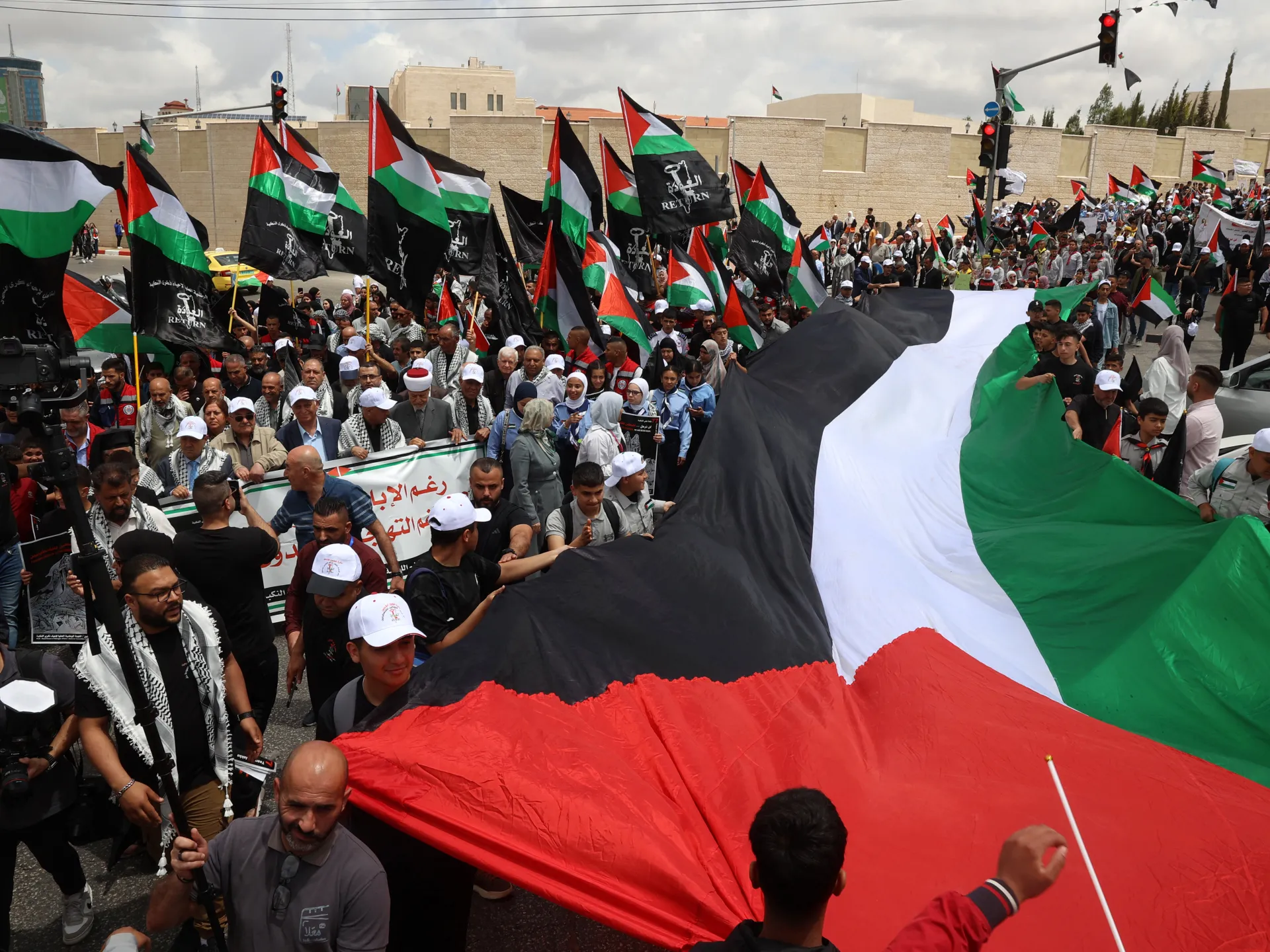
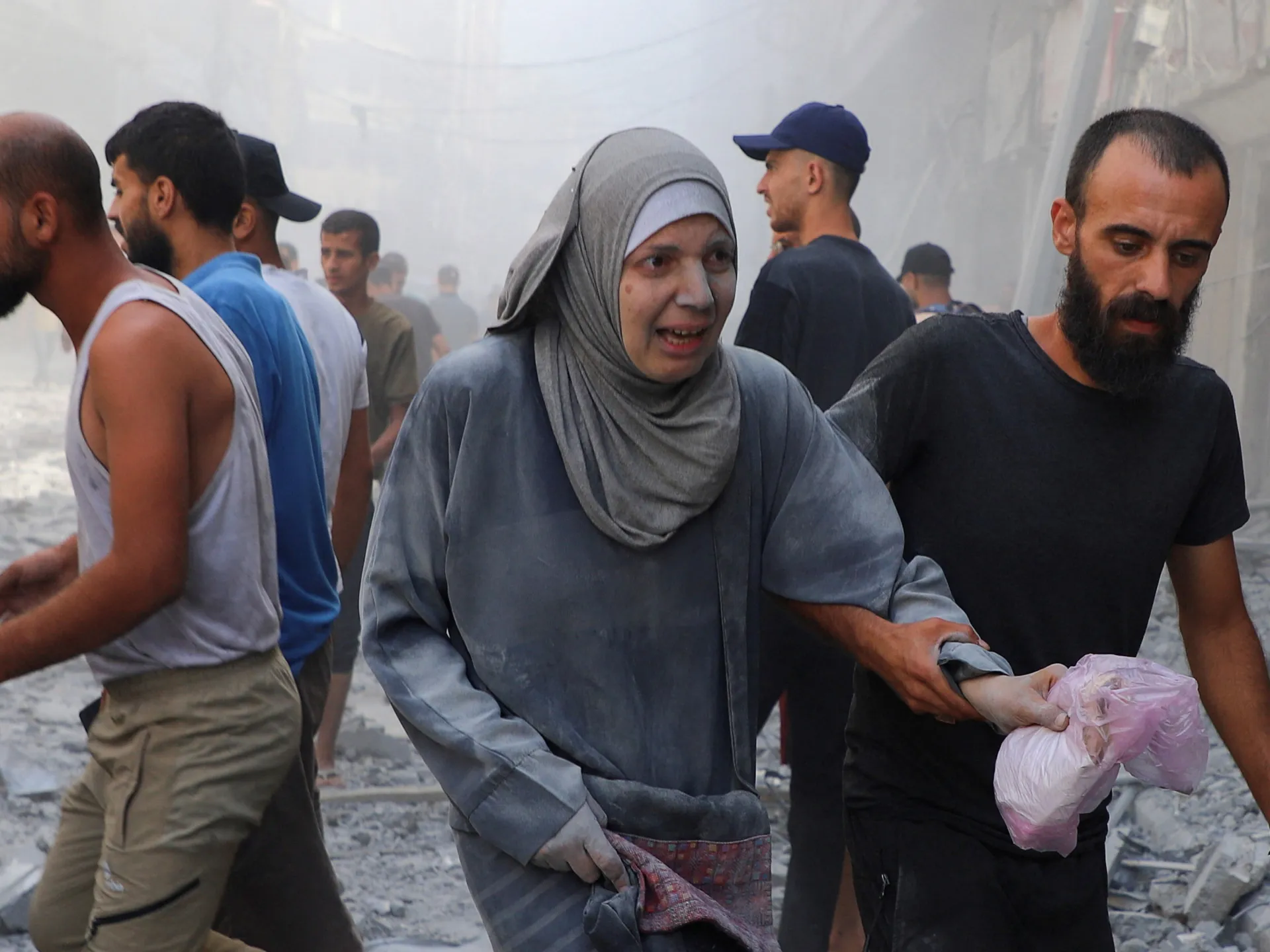
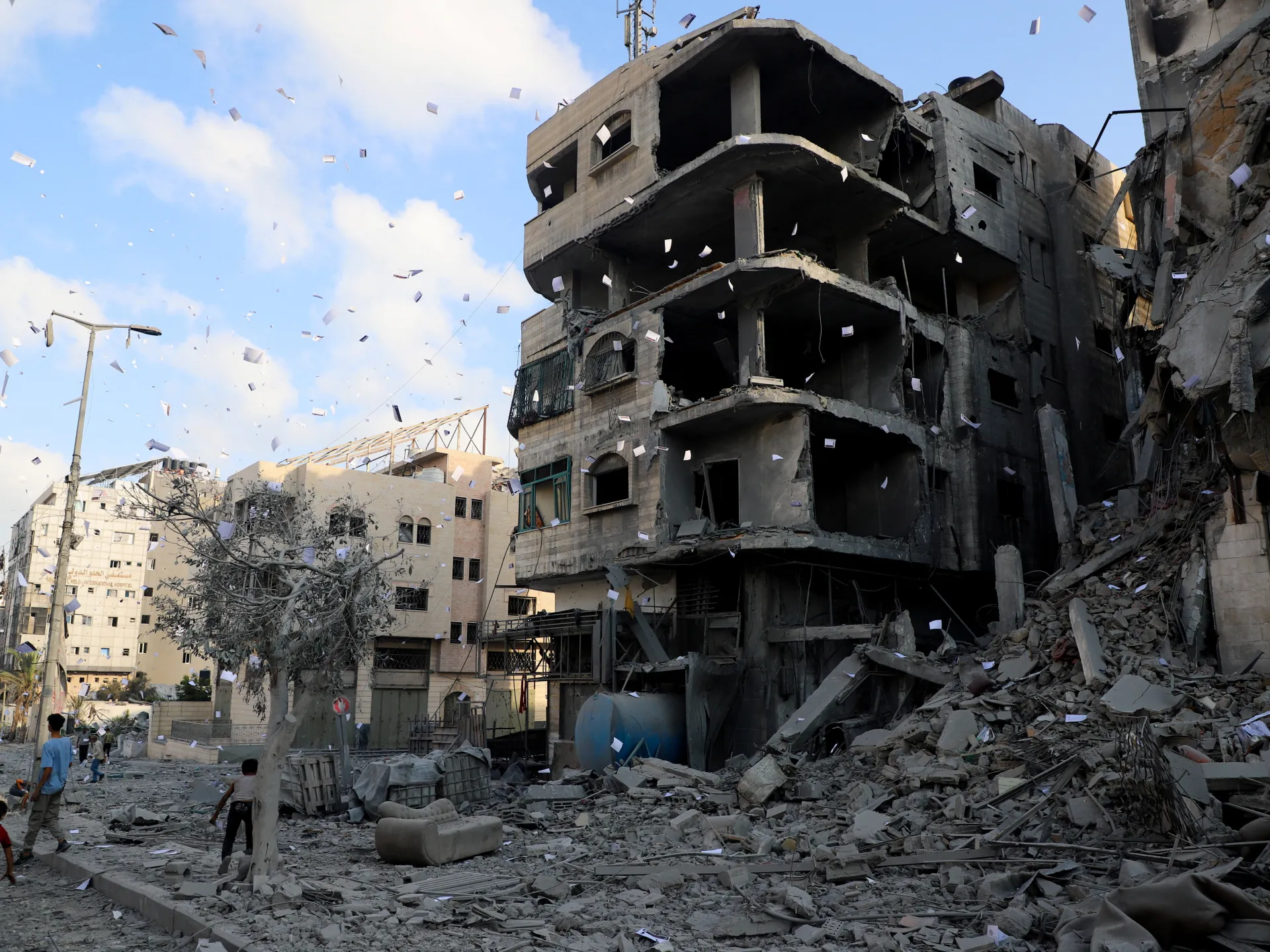
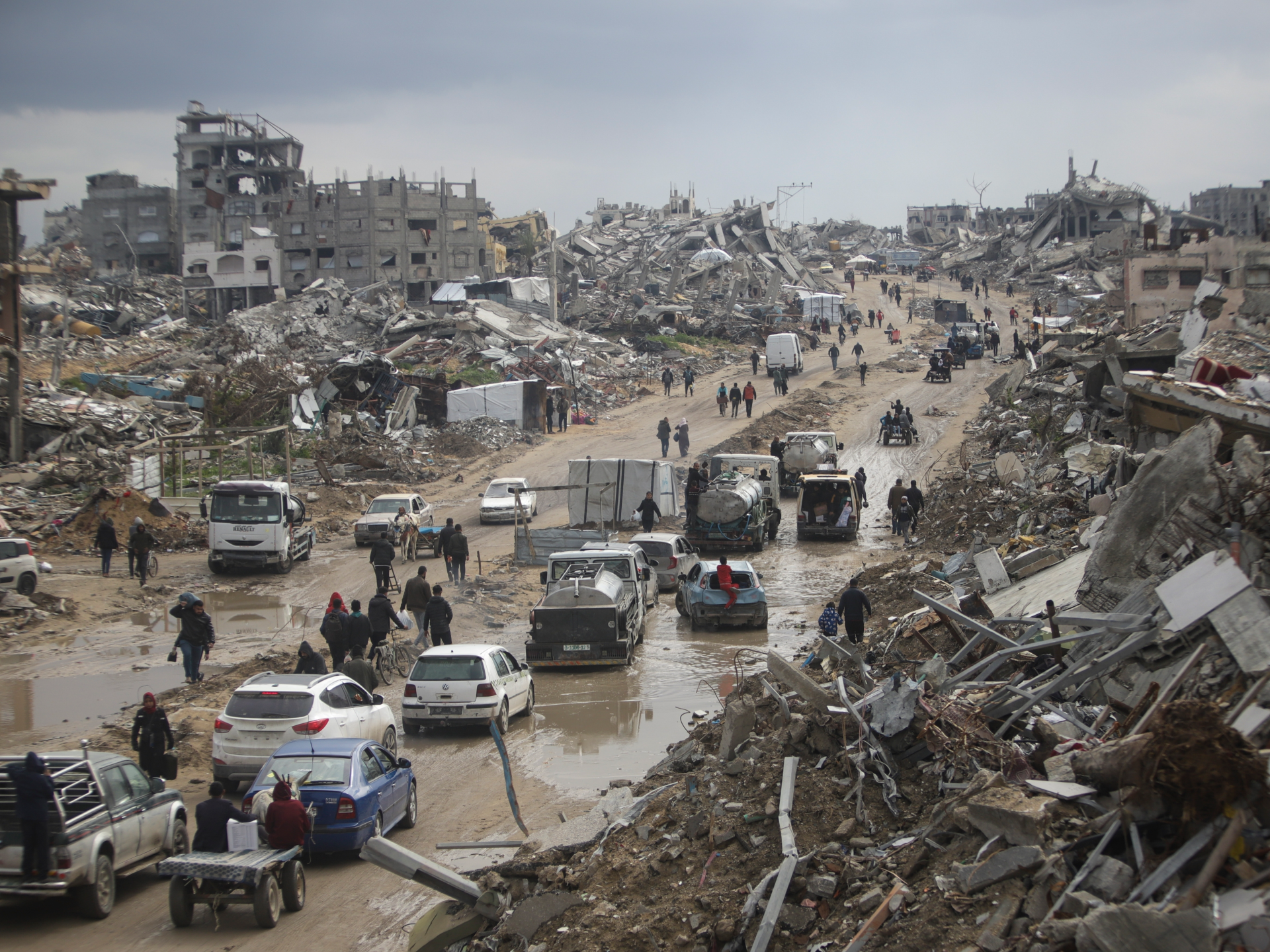


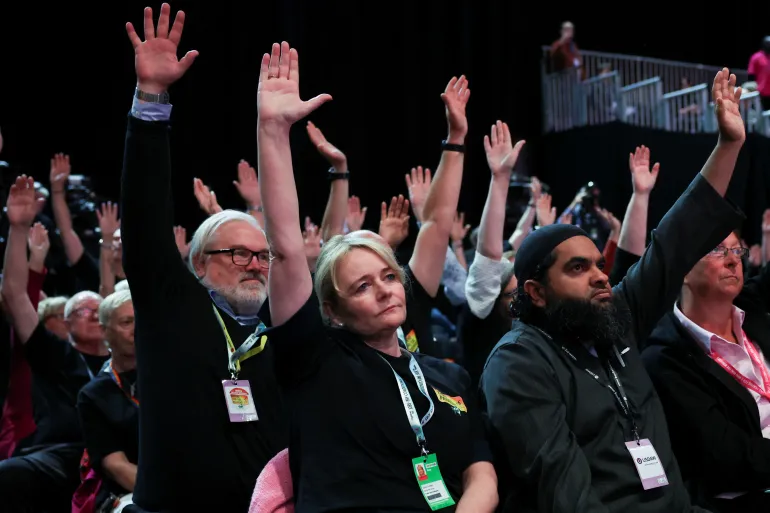
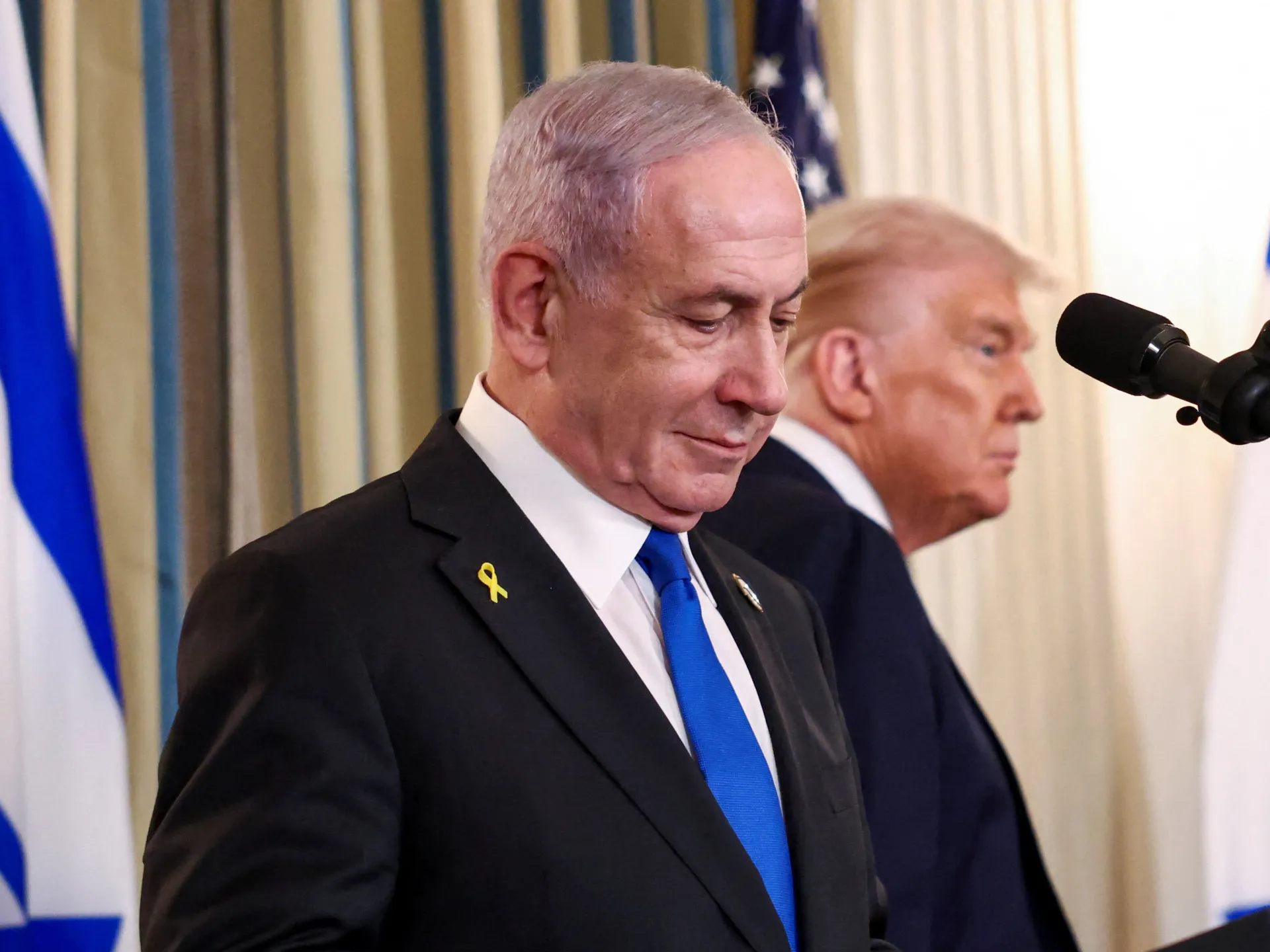
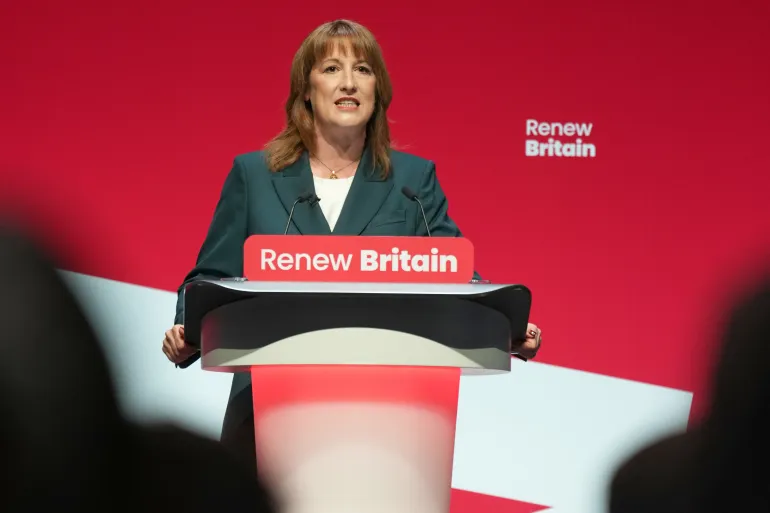

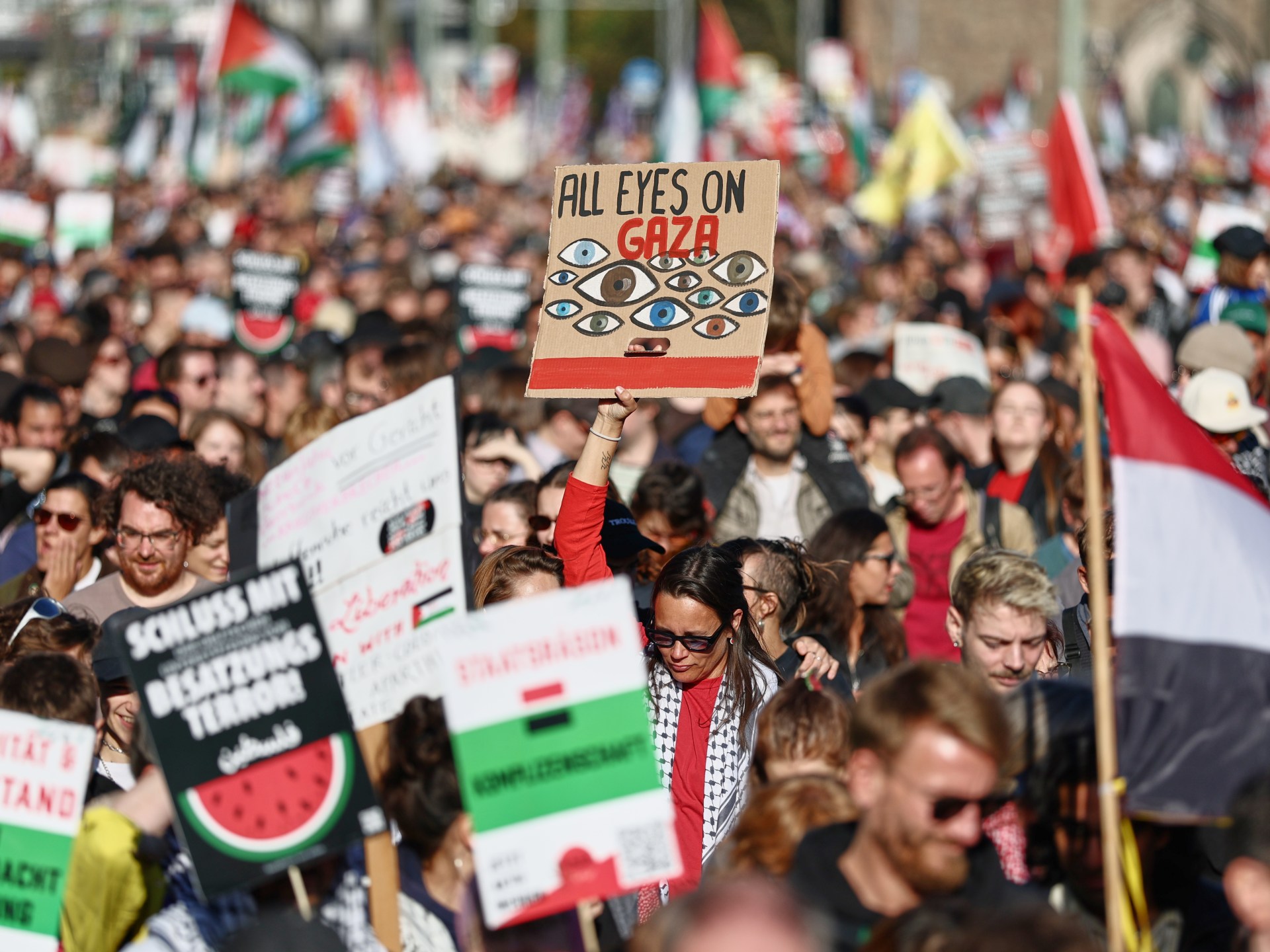



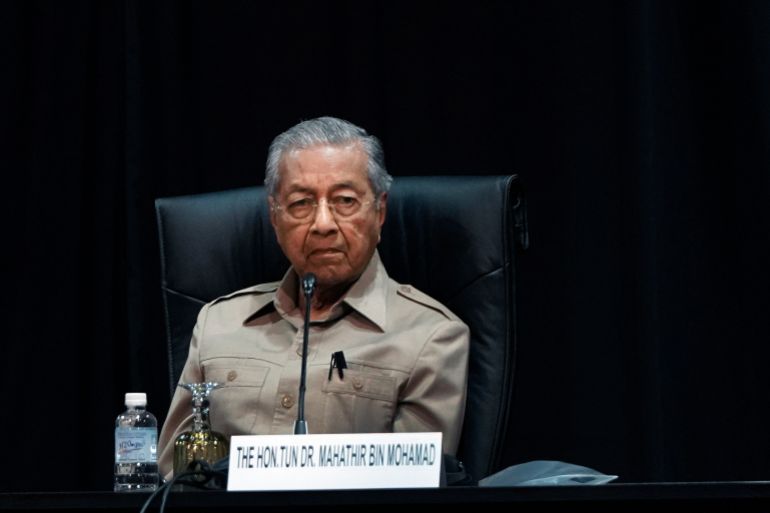



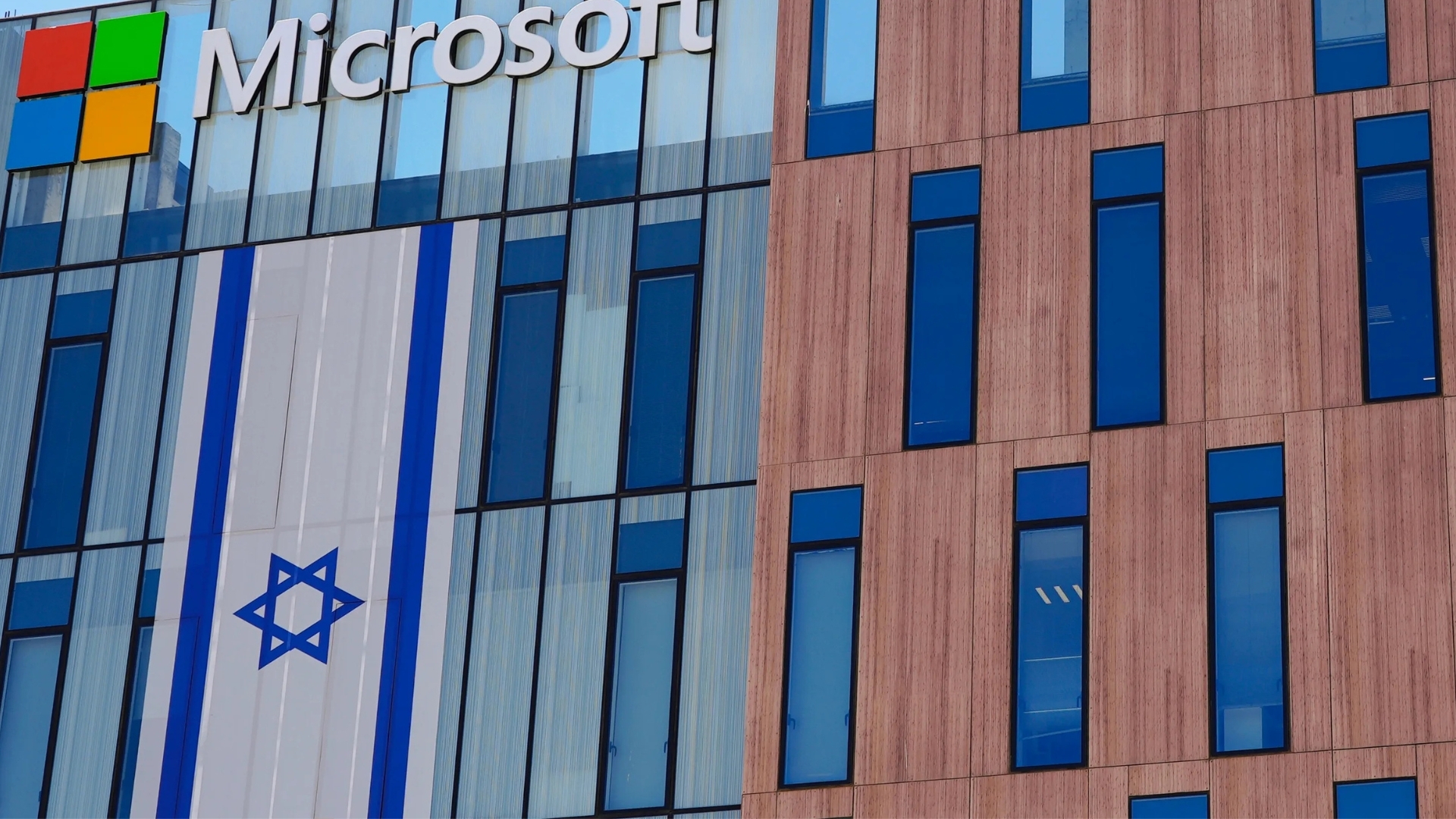
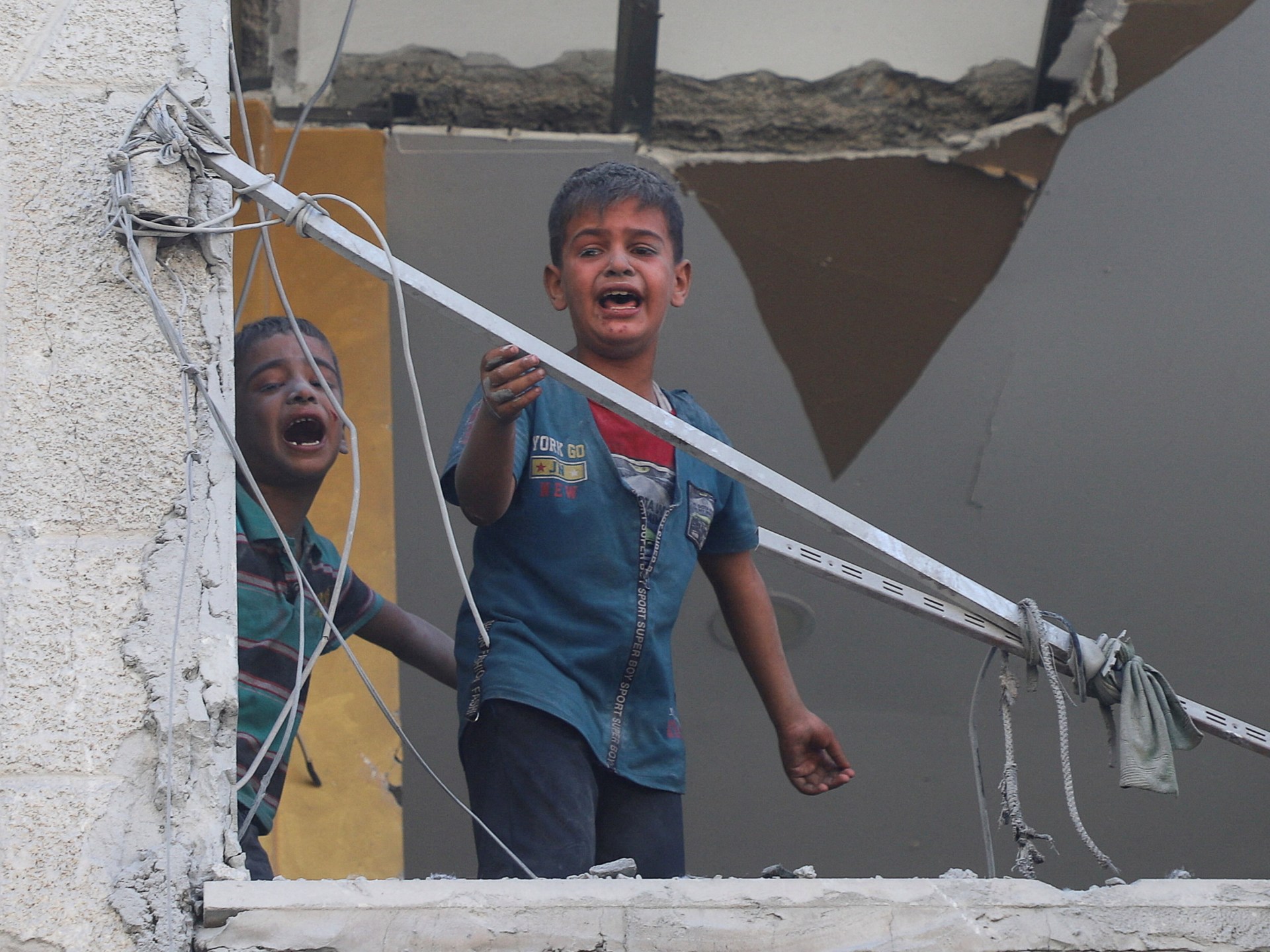
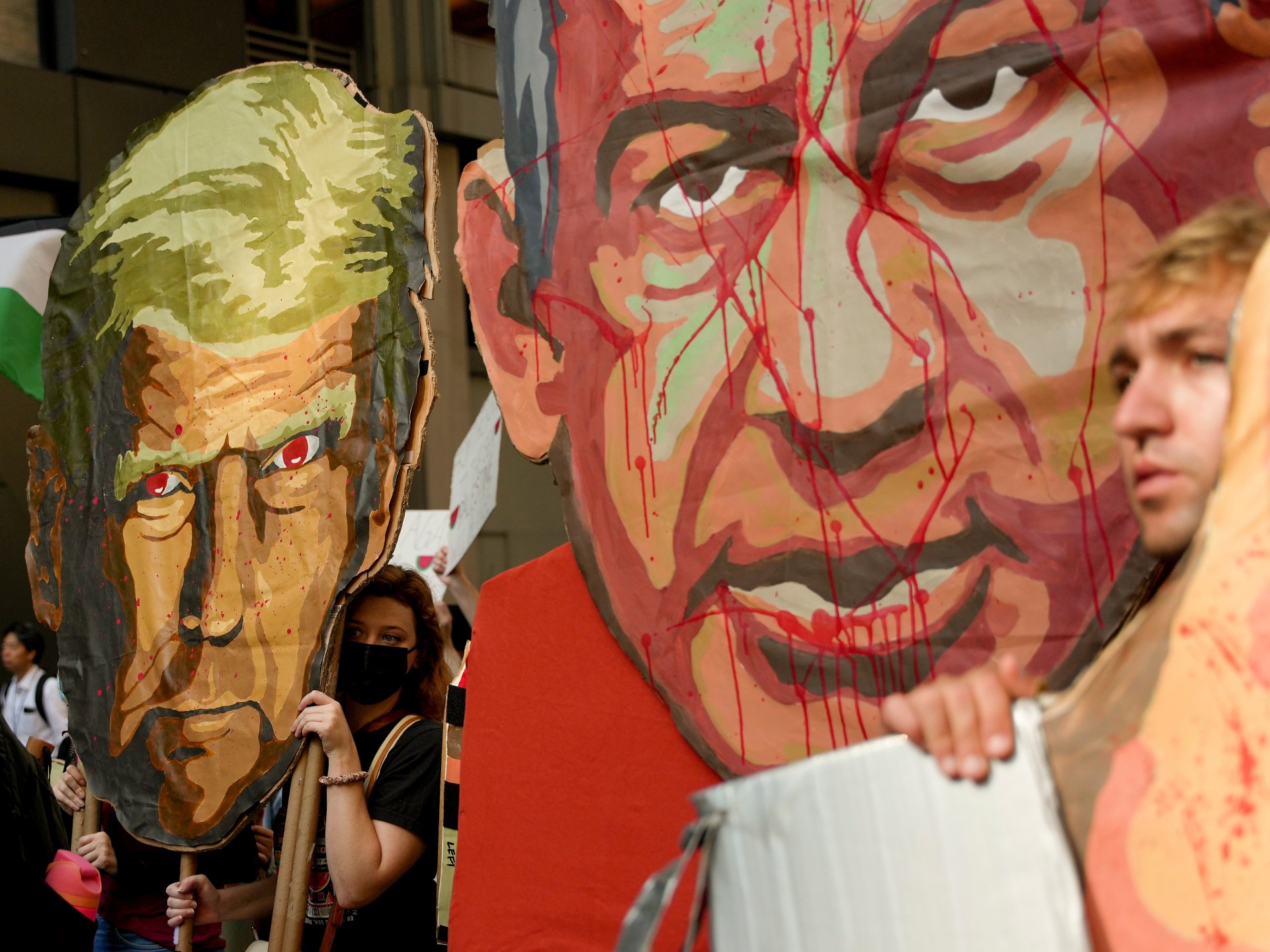
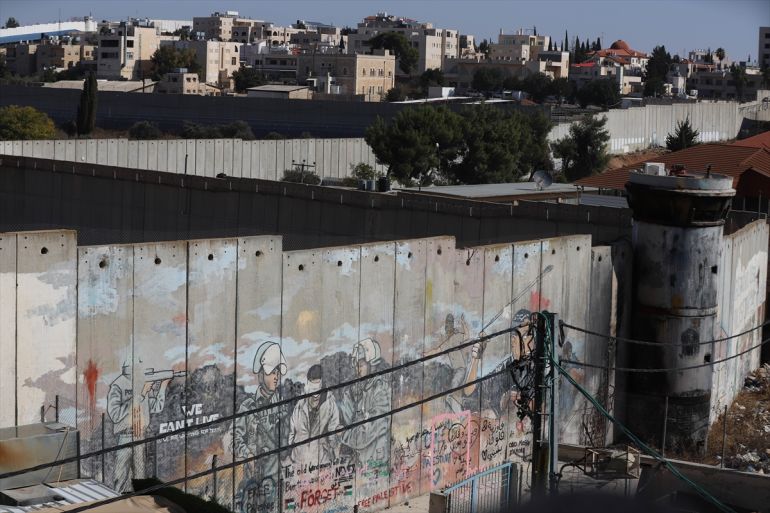
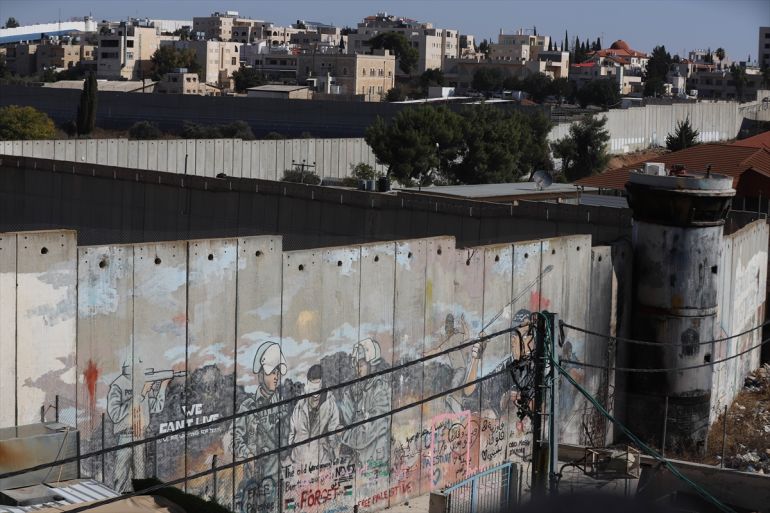
![Israeli far-right Finance Minister Bezalel Smotrich holds a map of an area near the settlement of Maale Adumim, a land corridor known as E1, outside Jerusalem in the occupied West Bank, on August 14, 2025, after a press conference at the site. [Menahem Kahana/AFP]](https://www.occasionaldigest.com/wp-content/uploads/2025/09/AFP__20250814__69HV6DR__v1__HighRes__IsraelPalestinianConflictSettlementPolitics-1755194568.jpg)
